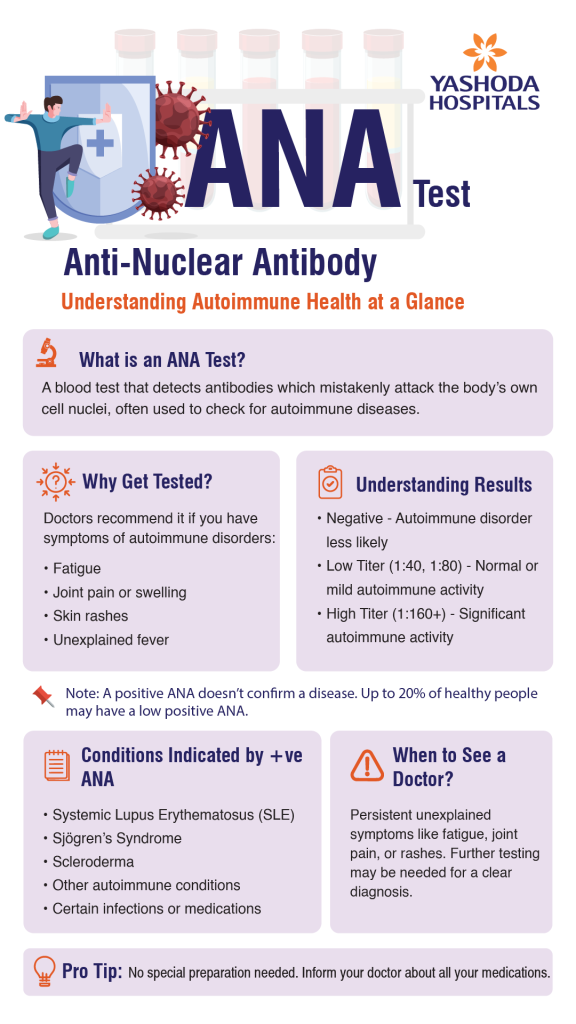What is an ANA Test?
An ANA (Antinuclear antibody) test helps doctors detect antinuclear antibodies (ANA) in your bloodstream. Your immune system develops antibodies to fight infections. However, when your body produces antinuclear antibodies, these proteins “misfire” and attack body tissues by targeting the nucleus of each cell (hence, ‘antinuclear’). That means, if you test ANA positive, it could indicate that your immune system is attacking your healthy cells, tissues, and organs. This condition is also known as the autoimmune reaction. However, in some cases, people stay fit even when they test positive for ANA.
What is the ANA Test Used For?
The ANA (antinuclear antibody) test is used to diagnose autoimmune disorders in your body. For example, it helps understand Systemic Lupus Erythematosus (SLE), a type of chronic autoimmune disease, the most common type of lupus that affects multiple body parts, including joints, kidneys, and the brain. Doctors also use this test to rule out conditions such as rheumatoid arthritis, scleroderma, and Sjogren’s syndrome.





 Appointment
Appointment WhatsApp
WhatsApp Call
Call More
More